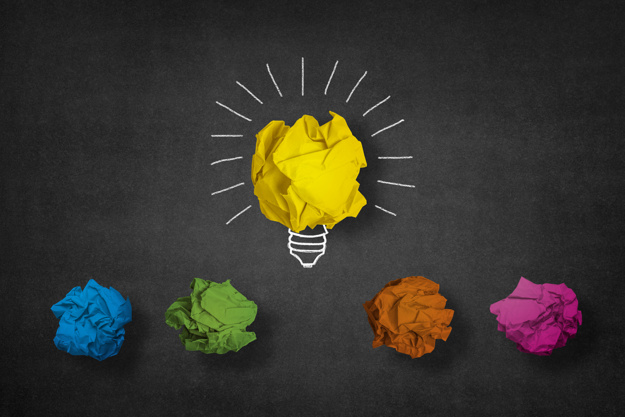What can help us to assess the meaning of ideas and arguments better than asking questions? Critical thinking is all we need to be able to distinguish between right and wrong. It gives us the ability to make informed decisions as we can observe, analyze, and evaluate information without bias. To understand critical thinking better, let us look at the essence of this process and its advantages.
What Is Critical Thinking?
Critical thinking is a complex and trans-disciplinary term that cannot fit a single definition. Aiming to explain it, people use different words, including a self-regulatory judgment, intellectually disciplined process, and questioning approach. However, even though scholars have not developed a universal definition, they do agree on several concepts and processes that are crucial for critical thinking. These are logic, unbiased analysis, self-regulated thinking, evaluation, and rationality. Thus, we can conclude that critical thinking is the act of making a reasoned judgment based on analysis, observation, evaluation, and interpretation of different types of evidence.
Essential Critical Thinking Skills
To think critically, one needs to develop a set of skills that includes analysis, communication, inference, observation, and problem-solving.
Analysis
Critical thinking gives us the ability to perform deep analysis. This process involves collecting, examining, and interpreting information to ensure objective conclusions. It gives us the foundation to deal with various tasks. For example, there are a lot of “write my essay” requests as creating a good paper without working first on critical thinking skills is quite tough at times. It is attributed to the fact that academic writing requires a profound analysis of evidence and evaluation of sources.
Communication
Interpersonal communication is key to our success and well-being. Critical thinking prepares us to convey our thoughts effectively and collaborate with others as we learn how to prove our arguments, present ideas, and work on solutions together. For instance, it may help you to find common ground with fellow students when working on group projects or to deliver a compelling presentation in class.
Another option is looking into public speaker coaching at Thought-Leader, which can enhance these crucial communication skills by providing valuable guidance on delivering persuasive presentations, refining argumentation techniques, and fostering effective collaboration.
Inference
Inference is an opinion or conclusion that we develop based on facts and evidence. It allows us to predict the consequences of actions and events. Critical thinking teaches us to explore multiple perspectives and points of view, including opposing ones, to see the big picture. Drawing sensible conclusions will help you deal with any school assignments or projects where you need to develop different scenarios or assess the performance of a certain organization.
Observation
This is a fundamental critical thinking skill that allows spotting and identifying problems. Observant people are attentive and mindful of their surroundings. They are able to notice patterns, monitor changes, and evaluate opportunities. Critical observation trains people to respond to challenges, making them aware of the events happening around them.
Problem-Solving
The problem-solving skill allows you to address challenges. It helps to solve problems efficiently as you will reach new insights, implement a suitable solution, and evaluate its effectiveness with the help of critical thinking. Other skills facilitate problem-solving as they provide critical information analysis that is necessary to develop successful solutions.
Why Is Critical Thinking Important?
Critical thinking is a valuable asset to develop. It can help us in our personal and professional lives in a number of ways. Here are six helpful merits of critical thinking.
It Promotes Life-Long Learning
To lead a successful and productive life, one should remain curious to explore the world with all its cultures, beliefs, and views. It supports our growth and improves us continuously. Aside from intellectual wellness, life-long learning gives us a sense of personal fulfillment. It is a powerful source of inspiration that will drive you forward.
It Provides a Universal Skill Set
Critical thinking skills are universal. They can be used across various disciplines and occupations. No matter what career you are interested in, the ability to observe, analyze, and solve problems will make you a prospective employee.
It Encourages Creativity
Critical thinking allows you to perceive the world with an open mind, questioning everything you encounter. It fuels creativity and inspires you to look for answers. Therefore, critical thinking gives resources for new ideas and innovative solutions.
It Builds Independence
As critical thinking enhances decision making, we become more independent. It empowers us to make our own decisions and trust our judgment. Independence comes with confidence and readiness to take responsibility for our actions. Thus, critical thinking prepares us to deal with complex problems.
It Widens Our Worldview
Critical thinking influences the way we perceive and understand events and situations. It allows us to be conscious of the world and our inner experience of life. We become capable of detaching ourselves from assumptions and stereotypical thinking. As we question and critically analyze information, we become more objective and open-minded.
It Strengthens Our Relationships
As people become more open to new ideas, they are ready to accept the diversity of opinions. Critical thinking gives us tools to understand the perspectives of other people and be more humble in case of disagreements.
Critical thinking takes time and patience to develop. Yet, it is a valuable resource as it promotes improvement and innovation, challenging you to work on solutions to existing problems.
Follow Technoroll for more good content.






